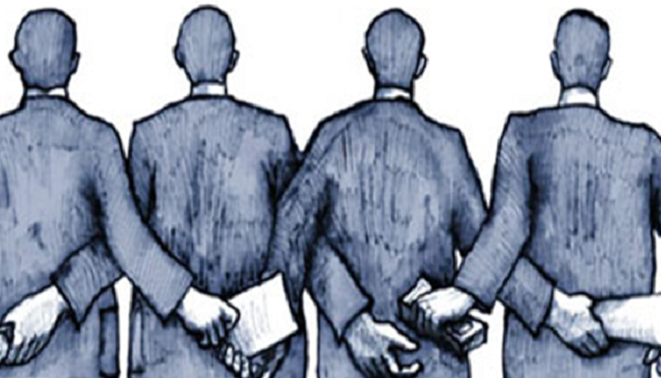
Soldier on, OccupyGhana
For some time now ordinary people have been concerned about the wanton dissipation of public funds for personal gain.
Indeed, the issue of corruption has influenced the electoral fortunes of the various governments that we have had since 1992.
In the 1990s, the media waged a big crusade against what they perceived to be corrupt practices among some functionaries of the Rawlings administration.
The Commission on Human Rights and Administrative Justice (CHRAJ) even waded into the matter, compelling some ministers of state then to resign.
The infamous Cotton Affair of 2000 led to the incarceration of some ministers of state when the Kufuor government assumed power.
In 2007 and 2008, opponents of the Kufuor government accused the government of corrupt practices and urged the electorate to vote against the New Patriotic Party (NPP) which was seeking a third term in 2008.
The Mahama administration was not spared the corruption ‘paint’, as activists of the present government accused it of corruption and asked the electorate to save the public purse by voting against the National Democratic Congress (NDC) in 2016.
Another dimension of corruption to the ordinary Ghanaian concerns the manner in which public officials embezzle funds meant for the public good, as captured in the Auditor-General’s Report and discussed by the Public Accounts Committee (PAC) of Parliament since 1993.
The money captured as embezzled by public officials and, in some cases, private individuals, has not been recovered even as of today and, according to OccupyGhana, it is estimated about GH¢40 billion.
What the Daily Graphic has been worried about over the years is the attitude of public officials, particularly politicians, who defend allegations of corruption in their governments.
However, our ministers of state are hardly ‘fingered’ in those deals, and yet they are unable to expose the public officials involved, so that the law could take its course.
Regrettably, these ministers lead the public officials to appear before the PAC, embarrassing themselves and making Ghanaians angry at the revelation of wanton dissipation of the taxpayer’s money.
Just take a step out of your house and you will be hit by the decay that surrounds you. It makes you feel that multi-party democracy has been adopted just to make people in the political class and their families rich and prosperous, while the majority of the people wallow in poverty, disease and squalor.
The decay can be found in our schools, where in some places children lie on their bellies to participate in the teaching and learning process and even use stones as mouses in ICT classes.
Now that the rains have started, potholes on our roads have turned into manholes, with drivers and passengers plying those roads, even in the capital city, dancing involuntarily as if some drumming and dancing sessions have begun.
These days, the Daily Graphic and its Editorial team bemoan the state of development in Ghana in the 21st century any time some stories about our development challenges are presented at Editorial Conference.
It is against this backdrop that we salute OccupyGhana for daring the establishment to recover all stolen money from public officials.
By this singular act, the group has demonstrated that it is averse to corruption and that it will take any step sanctioned by law to help the state stop corrupt officials from making life uncomfortable for all of us.
Example, they say, is better than precept and the group has demonstrated very clearly that it will not shout against corruption on rooftops but act to get everybody to do what the law tolerates.
The Daily Graphic enjoins all to support the government in any concrete action to stop corrupt officials in their track. The people must also take advantage of the Whistleblowers Act to expose wrongdoing around us, as crime combat is a collective responsibility.
